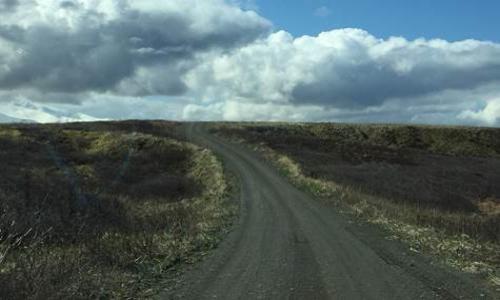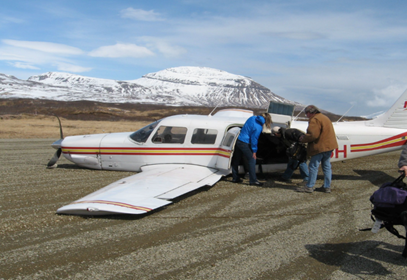Delegation Hails Landmark Agreement for Life-Saving Road
U.S. Sens. Lisa Murkowski, Dan Sullivan, and Rep. Don Young, all R-Alaska, today released the following statements after the Department of the Interior and the King Cove Corp. signed an agreement authorizing a small land exchange needed to construct a short, gravel, life-saving road that will connect King Cove, Alaska to the all-weather airport in nearby Cold Bay.
“Common sense and compassion have finally prevailed,” Murkowski said. “For decades, the people of King Cove have asked for what virtually every other American already takes for granted—a reliable way to protect their health and safety and improve their quality of life. Previous administrations have focused on just about everything except the most obvious solution, which has always been a short, gravel connector road. I am so pleased for King Cove and deeply grateful to Secretary Zinke and President Trump for taking this critical step.”
“For years, our federal government has been telling the people of King Cove that protecting birds is more important than their health and safety,” Sullivan said. “This ends today. I thank Congressman Young and Senator Murkowski for all their hard work over the years to right this wrong. I thank the Trump administration for its support, and I particularly thank Secretary Zinke for listening to the people of King Cove, whose voices have been ignored all of these many years. This is a good day for Alaska and a good day for America.”
“I have been working with the residents of King Cove for over 30 years to help them get a life-saving road to the community of Cold Bay. This is a great day not only for King Cove, but for all of Alaska,” Young said. “In 2013, Sally Jewell decided that birds were more important than people, and today we finally have a Secretary who takes the life and death of Alaska Natives seriously. I want to thank Secretary Zinke on behalf of all Alaskans for his work in getting the King Cove road approved. I look forward to working with him on other issues for our great state.”
The King Cove Corp. is comprised of Alaska Natives from two Aleut tribes who have lived in the region for millennia. A lifelong resident, member of the local Agdaagux tribe, and community spokesperson, Della Trumble, signed the agreement on behalf of King Cove today with Secretary Zinke.
“The land exchange agreement with the Interior Department represents a major milestone in our decades-long fight to protect our families and secure our access to safe, reliable transportation options in an emergency. This is truly a matter of life and death to us and we are extremely grateful to Sen. Murkowski and the entire delegation for standing with us for all these years,” Trumble said.
“Above all, the federal government's job is to keep our people safe and respect our treaty commitments with Native Americans and Alaska Natives, today I am proudly fulfilling both of those missions,” Secretary Zinke said. “Previous administrations prioritized birds over human lives, and that's just wrong. The people of King Cove have been stewarding the land and wildlife for thousands of years and I am confident that working together we will be able to continue responsible stewardship while also saving precious lives.”

Roads already exist in several parts of the Izembek refuge, and
have had no negative effect on local bird or wildlife populations.
King Cove is located between two volcanic mountains near the end of the Alaska Peninsula, about 625 miles southwest of Anchorage. The small gravel airstrip in King Cove is typically closed more than 100 days each year by strong winds, turbulence, fog, rain, and other severe weather. Even flights that are not canceled are routinely delayed by dangerous conditions. By comparison, the all-weather airport in Cold Bay, which is less than 30 miles away from King Cove, is home to one of the longest runways in the state and closed an average of just 10 days per year.

A plane crash in King Cove in April 2010. A total of 18 people have died in plane crashes or waiting to be medevaced from King Cove since the creation of the Izembek refuge in 1980.
For more information about the land exchange, please visit the Department of the Interior’s website.








